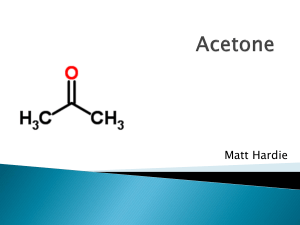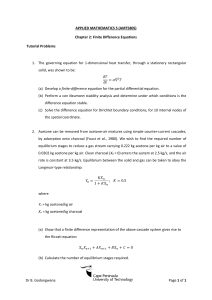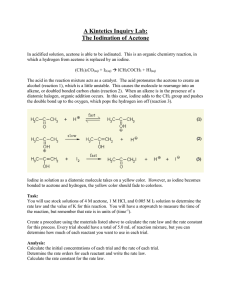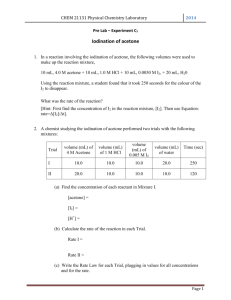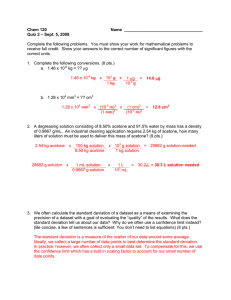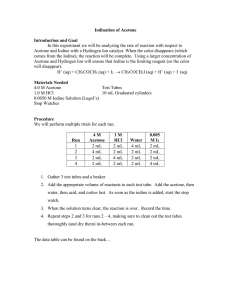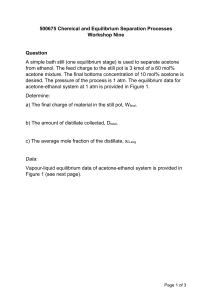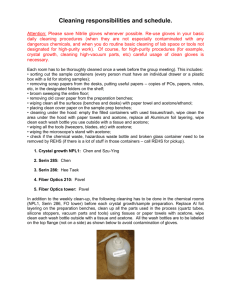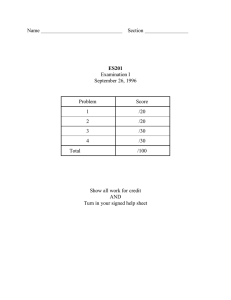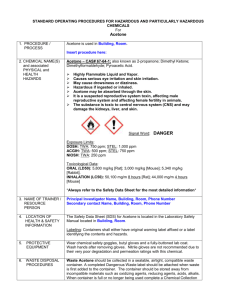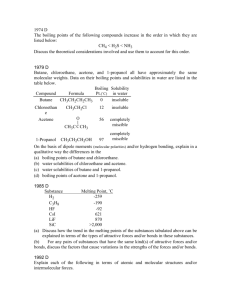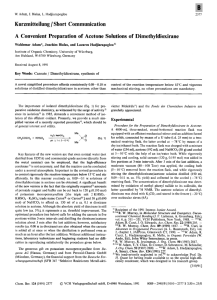Acetone (CH3)2CO is widely used as an industrial solvent. (a) Draw
advertisement
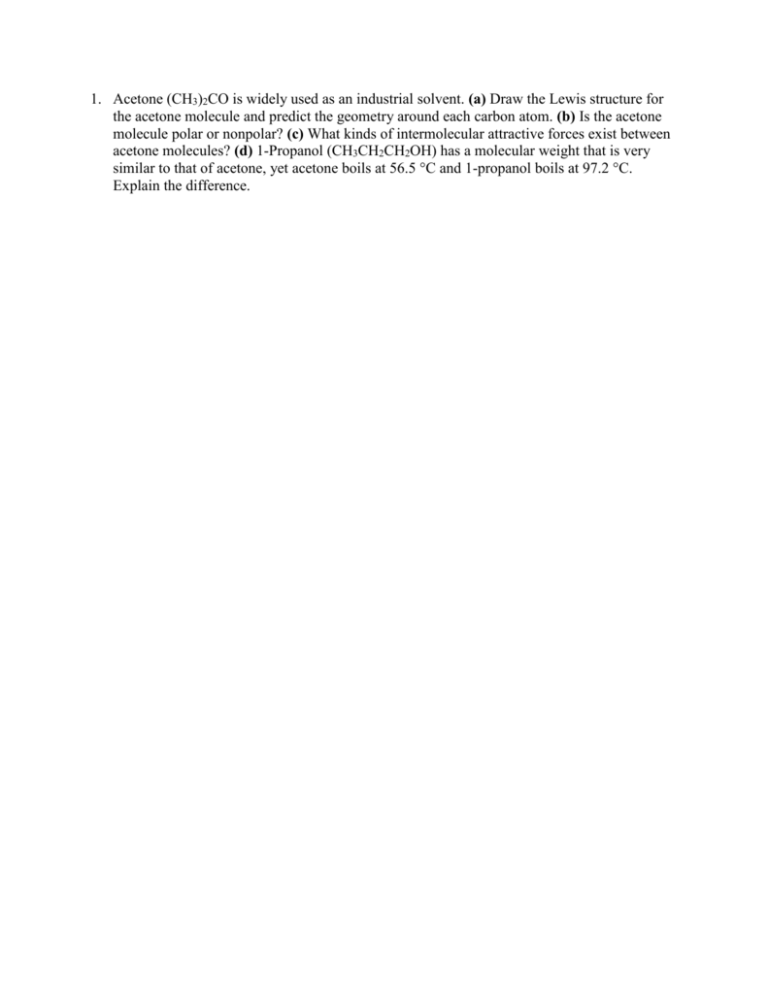
1. Acetone (CH3)2CO is widely used as an industrial solvent. (a) Draw the Lewis structure for the acetone molecule and predict the geometry around each carbon atom. (b) Is the acetone molecule polar or nonpolar? (c) What kinds of intermolecular attractive forces exist between acetone molecules? (d) 1-Propanol (CH3CH2CH2OH) has a molecular weight that is very similar to that of acetone, yet acetone boils at 56.5 °C and 1-propanol boils at 97.2 °C. Explain the difference. 2. A watch with a liquid crystal display (LCD) does not function properly when it is exposed to low temperatures during a trip to Antarctica. Explain why the LCD might not function well at low temperature. 3. In dichloromethane, CH2Cl2 (µ= 1.60 D), the dispersion force contribution to the intermolecular attractive forces is about five times larger than the dipole–dipole contribution. Compared to CH2Cl2, would you expect the relative importance of the dipole–dipole contribution to increase or decrease (a) in dibromomethane (µ= 1.43 D), (b) in difluoromethane (µ= 1.93 D)? (c) Explain.
